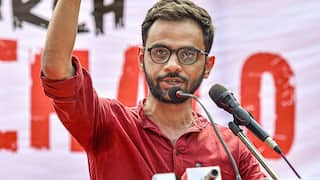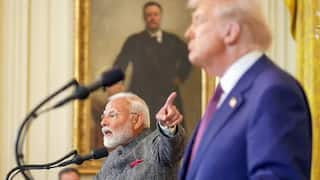Explorer
Women can give talaq, says fatwa

BAREILLY: A Muslim woman can give talaq to her husband if she has secured this right by way of a prenuptial agreement, Islamic seminary Dargah-e-Ala Hazrat of Bareilly has ruled. The seminary, which has issued the clarification two years after receiving a query from England, said in a fatwa on Saturday that men and women are equal in Islam. Mufti Salim Noori of the Daruf Ifta, the fatwa department of the dargah associated with Markaz-e-Ahle Sunnat Bareilly Sharif, a noted Islamic institution of the Barelvi sect, said women should be treated on a par with men in every respect, including talaq (divorce). In India, a large number of Sunni Muslims follow the Barelvi sect of Islam, as opposed to the more radical Deobandi or Wahabi sect. "The woman can give talaq to her husband if he is a drunkard or is immoral, unwell or unable to lead a normal married life. For convenience, the woman should secure this right at the time of nikah," Noori said in his latest fatwa, which was sought in 2014 by Maulana Asad Masood, a religious leader from Manchester, England. "It is called the talaq-e-tafweez. The parents of a woman can secure this right for their daughter at the time of her marriage if they fear she would be unsafe or mistreated in her in-laws' house in future.... The woman can tell her husband any time in her life that she wants to divorce him for certain reasons. The husband is bound to agree if she wants separation. But the elders of both families are expected to see whether she is of a balanced mind and is not misusing her rights," Noori said from Bareilly, 250km from Lucknow. The ruling is based upon the little-known provision of the talaq-e-tafweez, where a husband may delegate to the wife the authority to pronounce talaq. In practical terms, it can work if a prenuptial clause is inserted in the nikahnama or marriage contract. This tafweez agreement, made either before or after the marriage, gives the wife the liberty to divorce herself from her husband under certain specified conditions, such as the husband taking a second wife. For instance, in Mohd Khan versus Shahmali, which came up before the Supreme Court, there was a prenuptial agreement saying the husband would live in the wife's parental home after marriage. When he defaulted, this became the condition for divorce. The court upheld this. Notably, the wife did not divorce her husband but got herself divorced from the husband. Scholar Ameer Ali's book mentions three kinds of tafweez, of which one gives the wife the authority to divorce herself from her husband. However, Muslim scholars insist that even tafweez, in effect, does not deprive the husband of his authority because the wife gets to say "talaq" drawing on her husband's prenuptial consent. A more accepted system of a Muslim woman seeking divorce on her own terms is called the khula, or divorce by consent, in which the wife gives or agrees to give a consideration - such as money, or giving up her claim on property and jewellery - to the husband for her release from the marriage. The khula is thus a right of divorce the wife purchases from her husband. In Muslim law, if a husband levels a false charge of adultery, the wife is entitled to sue for and obtain divorce. In Pakistan, Clause 18 in the nikahnama is becoming an important provision, which allows the man to delegate the right of divorce (or talaq-e-tafweez) so the woman can seek talaq from her husband legally. Scholars in Pakistan are, however, sharply divided whether the wife has the power to pronounce the triple talaq. Indian scholars feel that when a marriage is dissolved, the manner of ending it is irrelevant. The Bareilly seminary had not responded when the question from England came two years ago. But Kanpur resident Fahim Raza asked the same question again early this month. "We decided to respond to this question because an intense debate is going on whether women should enjoy equal rights as men in Islam. Talaq is not a one-way right. Even women can exercise this and utter the triple talaq," Noori told The Telegraph. The issue was debated last month when Mohsina Bano, a woman from Daha village in Baghpat district, gave talaq to Mohammad Arif within three days of their marriage. She uttered the triple talaq over the mobile phone in the presence of a village panchayat, alleging her father-in-law Mohammad Sattar was demanding a car in dowry. Anwari Begum, the girl's mother, stood by her daughter, saying she would be unsafe with such a greedy family. The unofficial village panchayat, which included Hindu as well as Muslim members, agreed with Mohsina's decision. -The Telegraph Calcutta
Related Video
Punjab News: AAP Leader Shot Dead During Wedding in Amritsar
Follow Breaking News on ABP Live for more latest stories and trending topics. Watch breaking news and top headlines online on ABP News LIVE TV

Justin M Bharucha
Opinion




































